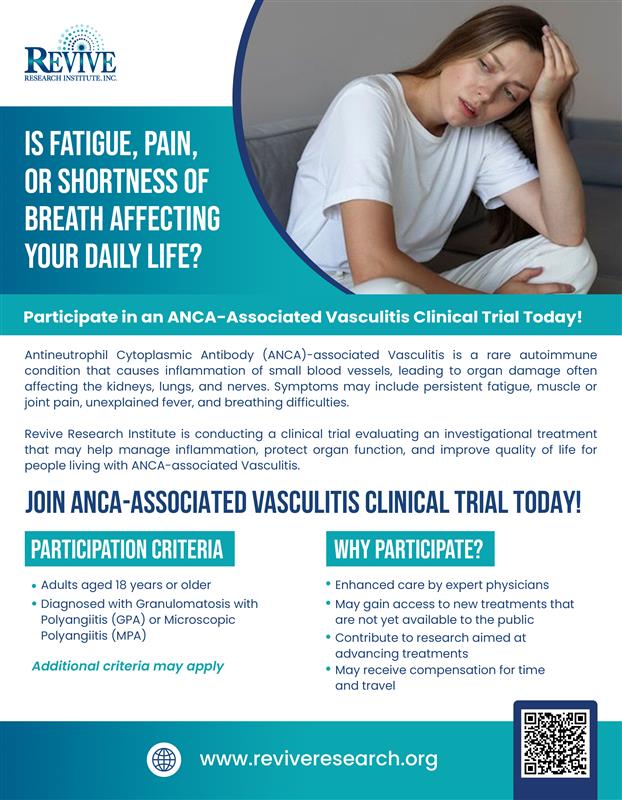Living with the Challenges of ANCA-Associated Vasculitis?
Exploring Potential Treatment Options for ANCA-Associated Vasculitis
ANCA-Associated Vasculitis (AAV) is a rare autoimmune condition where the immune system mistakenly attacks blood vessels, causing inflammation and damage to organs such as the kidneys, lungs, nerves, and sinuses. Without proper management, AAV can lead to serious health complications. Clinical trials are helping explore potential new treatment options and improve quality of life for those living with this condition.
Revive Research Institute is conducting ANCA-Associated Vasculitis clinical trials in Michigan to explore investigational treatment options that may help prevent infection and recurrence.
To be eligible for ANCA-Associated Vasculitis clinical trials in Michigan, participants must:
- Adults aged 18 years or older
- Diagnosed with Granulomatosis with Polyangiitis (GPA) or Microscopic Polyangiitis (MPA)
*Additional criteria may apply.
*Take part in paid ANCA-Associated Vasculitis Clinical Trials at no cost to you or your medical insurance. You will be reimbursed financially for your time and travel. In addition, all participants receive study-related care from an experienced research team.
*If you are interested in participating in the ANCA-Associated Vasculitis Clinical Trials in Sterling Heights, Michigan or would like more information, please fill out the form so we can determine if you qualify for the study and contact you. Note that this is an entirely voluntary decision.


